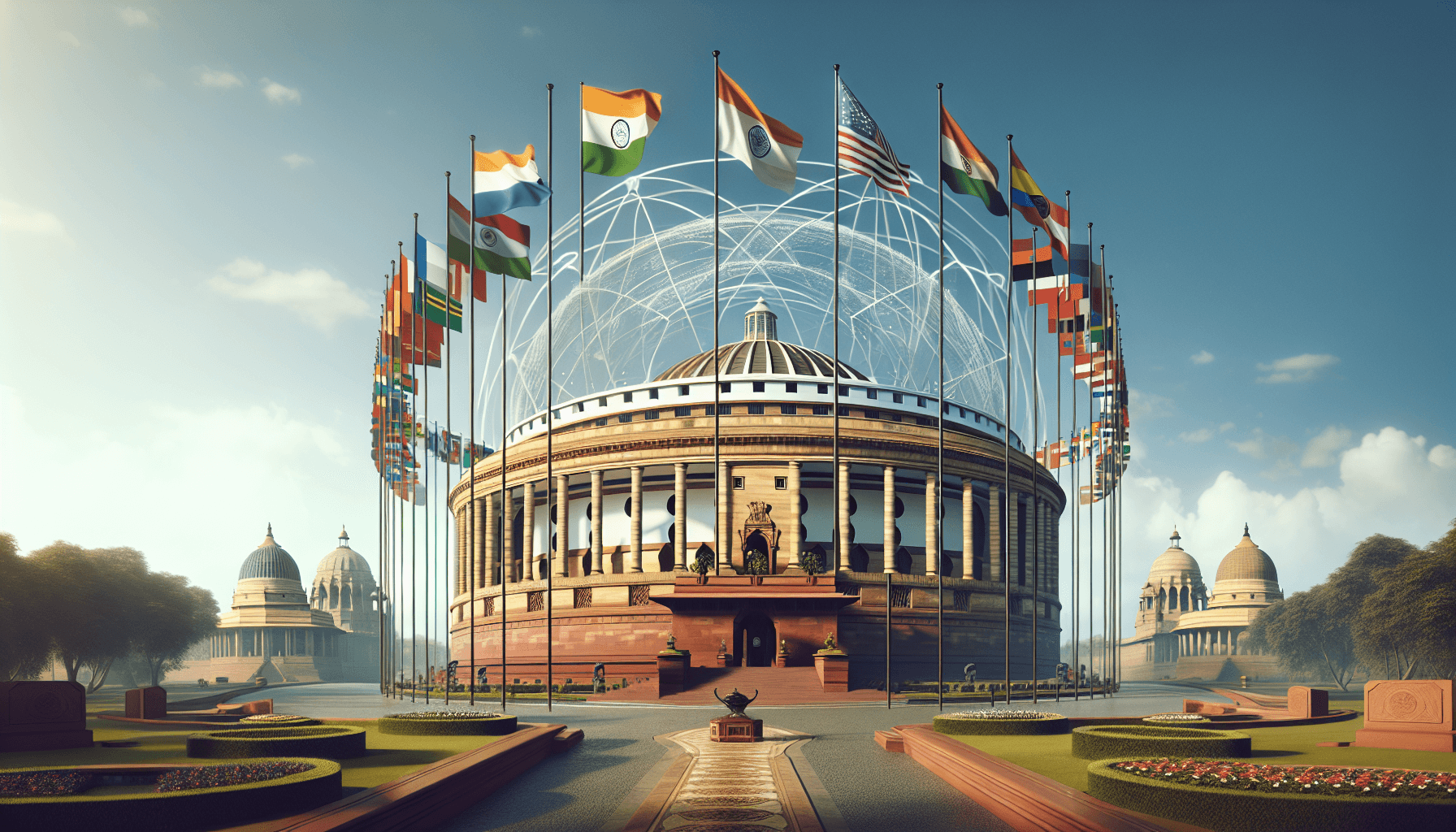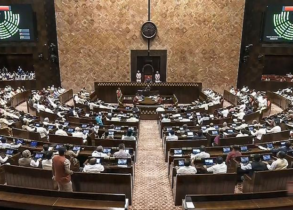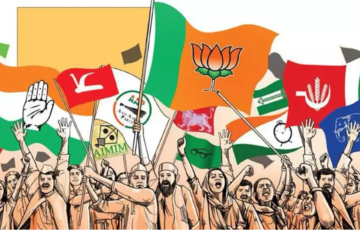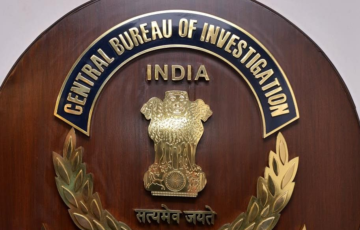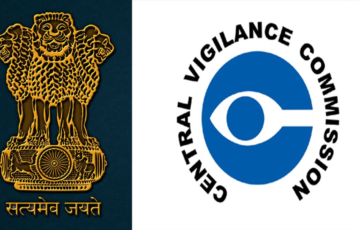PARLIAMENTARY GROUPS
Background
- The Indian Parliamentary Group (IPG) is a non-partisan forum of Indian members of parliament (MPs) who are interested in promoting closer ties between India and the United Kingdom (UK). It was founded in 1947, shortly after India’s independence.
- The IPG is open to all MPs, regardless of their party or group affiliation. It meets regularly to discuss issues of mutual interest to India and the UK, and to build relationships between Indian and British MPs. The IPG also organizes events and seminars on a range of topics, including trade, investment, security, and culture.
- The IPG is an important forum for dialogue and cooperation between India and the UK. It plays a valuable role in promoting understanding and friendship between the two countries.
Composition
Membership Eligibility:
- All members of the Parliament, including both the Lok Sabha and the Rajya Sabha, are eligible to become members of the IPG.
- Former members of Parliament can also join the IPG, but they are designated as associate members.
Rights of Associate Members:
- Associate members have limited rights within the IPG. They do not possess the same privileges as full members.
- Associate members do not have the right to represent the IPG at meetings and conferences of international organizations like the International Parliamentary Union (IPU) and the Commonwealth Parliamentary Association (CPA).
- They are also ineligible for travel discounts that might be offered to full members by certain branches of the CPA.
Ex-Officio Leadership:
- The ex-officio President of the IPG is the Speaker of the Lok Sabha, who holds a leadership role within the organization by virtue of their position.
- The ex-officio Vice-Presidents of the IPG are the Deputy Speaker of the Lok Sabha and the Deputy Chairman of the Rajya Sabha. They also hold leadership positions by virtue of their roles in the respective parliamentary chambers.
- The ex-officio Secretary-General of the IPG is the Secretary-General of the Lok Sabha, responsible for managing administrative functions within the group.
Objectives
The Indian Parliamentary Group (IPG) has several key objectives, which include:
- Fostering Inter-Parliamentary Relations: The IPG aims to promote and strengthen relations between the Indian Parliament and parliaments of other countries. It provides a platform for dialogue and cooperation among parliamentarians at the international level.
- Promoting Democratic Values: The IPG is committed to safeguarding and promoting democratic values. It seeks to engage in activities that support and uphold democratic principles both within India and globally.
- Enhancing International Cooperation: Through its activities, the IPG aims to enhance international cooperation and understanding. It provides opportunities for Indian parliamentarians to engage with their counterparts from around the world, exchange ideas, and collaborate on common issues.
- Addressing Global Challenges: The IPG recognizes the importance of addressing pressing global challenges, such as those related to peace, security, economic development, and environmental sustainability. It seeks to facilitate discussions and actions on these challenges.
- Exchanging Ideas and Best Practices: The IPG serves as a forum for parliamentarians to exchange ideas, perspectives, experiences, and best practices. It enables lawmakers to learn from one another and share insights on legislative and governance matters.
- Facilitating Collaboration: The IPG encourages collaboration with international parliamentary organizations, such as the International Parliamentary Union (IPU) and the Commonwealth Parliamentary Association (CPA). It helps Indian parliamentarians engage in these organizations’ activities.
- Promoting India’s Interests: While fostering international cooperation, the IPG also serves as a means to promote India’s interests and perspectives on various global issues.
- Supporting Parliamentary Diplomacy: The IPG plays a role in parliamentary diplomacy, representing the Indian Parliament in international forums and dialogues.
- Raising Awareness: The IPG raises awareness among its members and the international community about issues of global significance, including those related to democracy, development, and peace.
- Strengthening International Ties: By maintaining links with foreign parliaments through exchanges, goodwill missions, correspondence, and document sharing, the IPG strengthens India’s international ties.
Some specific examples of how the IPG works to achieve its objectives:
|
Functions
The functions of the Indian Parliamentary Group (IPG) are as follows:
- Maintaining International Relations: The IPG acts as a vital link between the Indian Parliament and other parliaments worldwide. It facilitates and sustains contact with foreign parliaments through goodwill missions, official delegations, and other communication channels.
- Hosting Dignitaries and Leaders: The IPG provides a platform for visiting heads of state and government from foreign nations to address and interact with members of the Indian Parliament. This includes delivering speeches and engaging in dialogue with renowned individuals.
- Organizing Seminars and Symposia: The IPG regularly organizes legislative seminars and symposia on national and international issues of significance. These events provide a forum for discussions, debates, and the exchange of ideas among parliamentarians.
- Support for International Travel: Members of the IPG receive letters of introduction to the Secretaries of the National Groups of the International Parliamentary Union (IPU) and the Secretaries of the branches of the Commonwealth Parliamentary Association (CPA) when they travel abroad. This ensures they are well-informed about the relevant parliamentary groups and can seek assistance and courtesy during their overseas trips.
- Criteria for Delegation Inclusion: The IPG sets specific criteria for the inclusion of members in Indian Parliamentary Delegations. To participate in such delegations, members must have served in the IPG for at least six months at the time when the delegation is formed.
Significance
- The Indian Parliamentary Group (IPG) holds significant importance in the context of India’s parliamentary and diplomatic engagement. Its significance can be summarized as follows:
- Enhancing Diplomacy and International Relations: The IPG serves as a key bridge between the Indian Parliament and other parliaments worldwide. It plays a pivotal role in maintaining and strengthening diplomatic ties with foreign nations through exchanges, goodwill missions, and interactions with foreign dignitaries.
- Promoting Democratic Values: By actively promoting democratic principles and values, the IPG contributes to India’s role as the world’s largest democracy. It advocates for democracy, the rule of law, and human rights on the global stage.
- Facilitating Dialogue on Global Issues: The IPG provides a platform for parliamentarians to discuss and find solutions to common global challenges. It allows for open and candid discussions on pressing issues such as peace, security, economic development, and environmental sustainability.
- Sharing Best Practices: The IPG offers parliamentarians an opportunity to share legislative best practices, experiences, and knowledge. This sharing of insights contributes to the exchange of ideas and promotes effective governance.
- Supporting International Cooperation: The IPG supports and enhances international cooperation on various matters of mutual interest, including diplomacy, trade, culture, and development. It fosters collaboration among nations on global challenges.
- Representing India on International Platforms: The IPG represents the Indian Parliament at international parliamentary organizations such as the International Parliamentary Union (IPU) and the Commonwealth Parliamentary Association (CPA). This representation helps India’s parliamentarians engage in global discussions and initiatives.
- Advocacy and Public Engagement: The IPG engages in advocacy efforts related to parliamentary and diplomatic matters. It contributes to the public discourse on international and national issues, making parliamentarians more aware of global developments.
- Strengthening International Ties: By facilitating exchanges, goodwill missions, and correspondence with foreign parliaments, the IPG strengthens India’s international ties. These connections are essential for diplomatic and geopolitical relations.
- Promoting Indian Interests: While fostering international cooperation, the IPG also works to promote India’s interests and perspectives on global issues, ensuring that India’s voice is heard on the world stage.
- Educating Parliamentarians: The IPG provides parliamentarians with valuable opportunities to learn from international experts, access expertise, and collaborate with global organizations and professionals.
In conclusion, the IPG is significant for its role in fostering international relations, promoting democratic values, addressing global challenges, and facilitating international cooperation among parliamentarians from India and other countries. It contributes to parliamentary diplomacy and India’s active engagement on the global stage.

